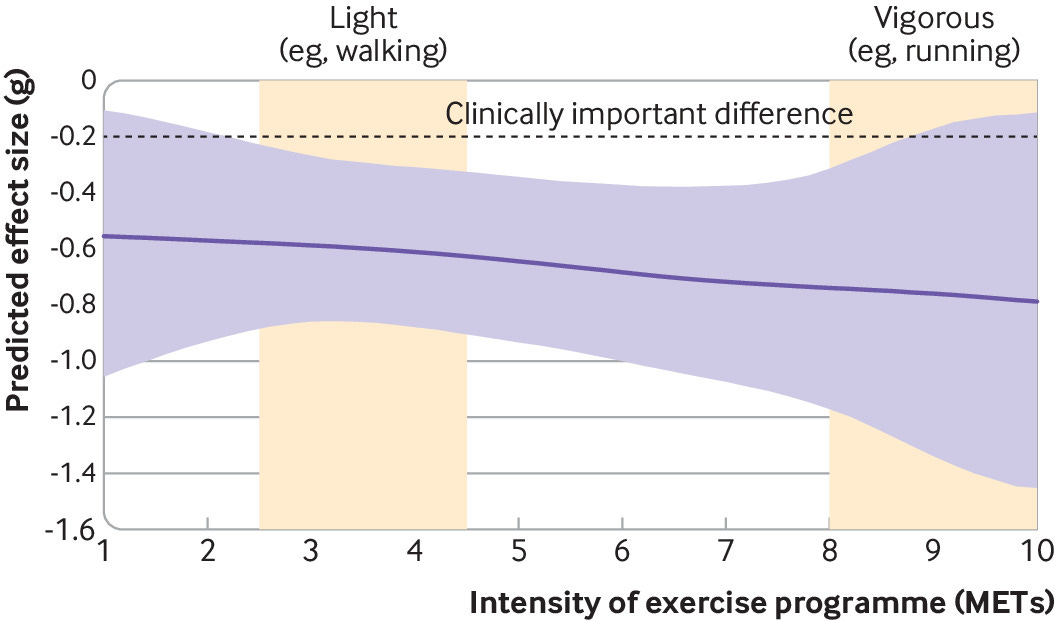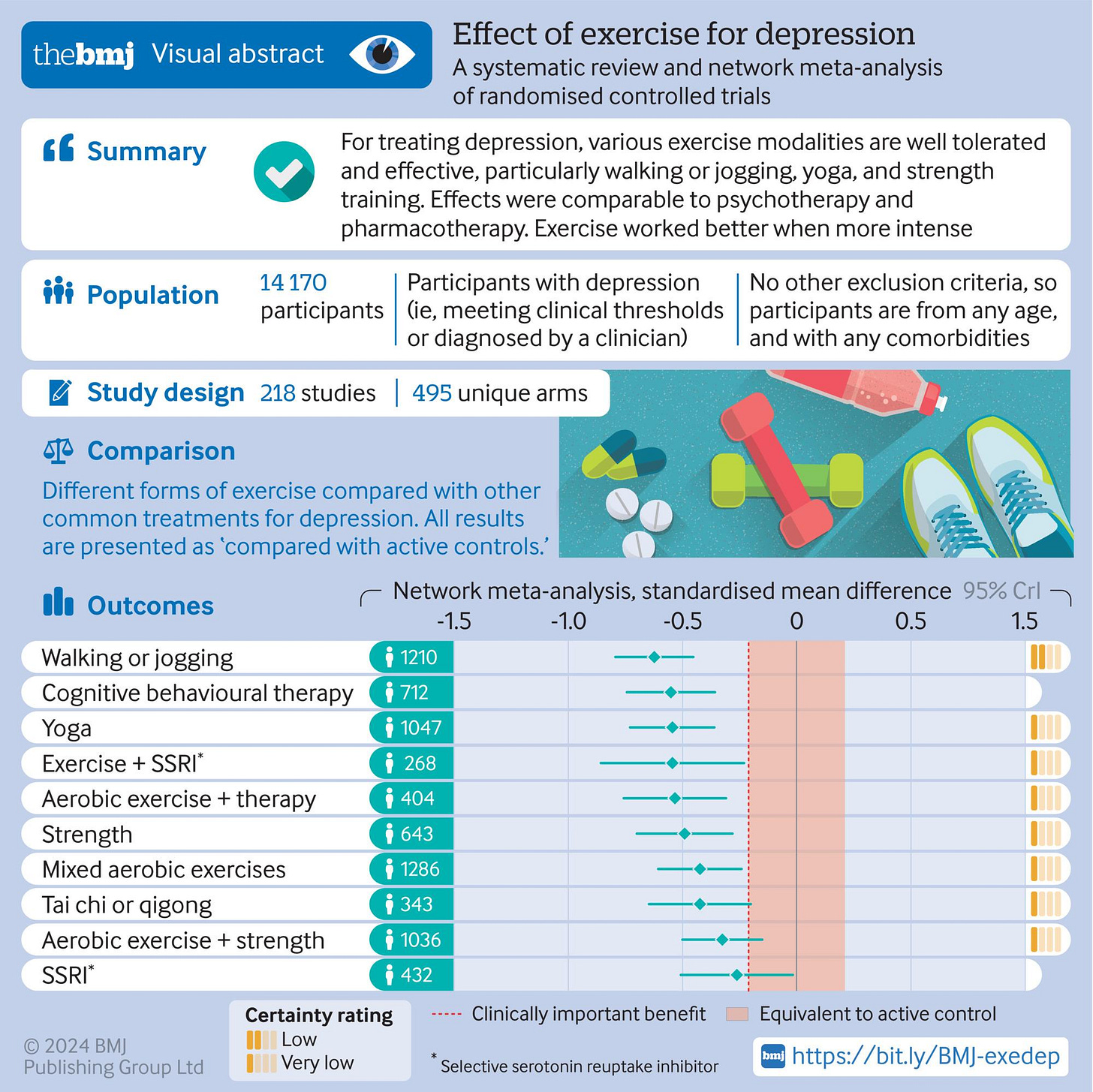Exercise is a Legit Treatment for (Low to Moderate) Depression
Evidence from a 2024 international comprehensive review

Terracotta Panathenaic prize amphora. Attributed to the Euphiletos Painter. ca. 530 B.C. Terracotta, 24 1/2 in. (62.2 cm). Rogers Fund, 1914 (14.130.12). The Metropolitan Museum of Art, New York.Earlier this year, the British Medical Journal (BMJ) published a paper titled "Effect of Exercise for Depression: Systematic Review and Network Meta-analysis of Randomised Controlled Trials.”
This research adds to decades of investigation into the effectiveness of exercise in addressing depression, emphasizing its viability, safety, and cost-effectiveness.
Traditionally, clinicians have advised exercise as a complementary approach alongside psychotherapy and/or antidepressant medication (i.e. SSRIs) for depression.
However, as far as I'm aware, this review marks the first instance where it suggests that exercise alone could serve as a treatment for depression, positioning it as a comparable alternative for psychotherapy and medication.
Below is the study abstract, outlining its main features and findings.
The paper involved a “network meta-analysis” (NMA; more on this below) of +200 randomized controlled trials (RCTs) with data from +14000 adults of all ages with depression across 33 nations:
USA, Saudi Arabia, Iran, Australia, Italy, India, Germany, the Netherlands, China, the UK, Portugal, Spain, South Korea, Hong Kong, Taiwan, Switzerland, Canada, Sweden, Brazil, New Zealand, Greece, Denmark, Croatia, France, Malaysia, Nigeria, Japan, Norway, Colombia, Thailand, Israel, Finland, and Turkey.
A brief review..
RCTs are the study method to use to see whether a particular treatment works better than a “placebo” or no treatment, or another type of treatment.
A meta-analysis synthesizes data from multiple RCTs that focus on a similar topic. And a network meta-analysis, as used in this paper, is a relatively new type of meta-analaysis for analyzing more than three different treatments simultaneously.
In the graph below, we can see that the paper looked at all of the relevant studies in this area. The paper compared 15 types of treatments, including a variety of exercise, psychotherapy, and medication use to see which one(s) would come out on the top.

Network geometry indicating number of participants in each arm (size of points) and number of comparisons between arms (thickness of lines). SSRI=selective serotonin reuptake inhibitor.Study limitations
Low data quality among a number of the reviewed studies.
Participants were tracked for no more than one year—the range was 1 to 52 weeks.
Key results
Exercise outperformed antidepressant medications.
Adding exercise to the use of antidepressant medication enhanced the effect of medication.
Walking or jogging, yoga, and strength training were more effective than other types of exercise.
More intense exercise (runnings vs. walking illustrated below) had greater benefits but even low intensity exercises such as walking and yoga conferred meaningful improvement in mood.

Dose–response curve for exercise intensity’s effect on depression compared with active control based on metabolic equivalent of tasks (METs).Group exercise was not more effective than individual exercise, except for yoga.
Strength training and the combination of aerobic and strength exercises were more effective for individuals than groups.
Exercise was comparable to cognitive behavioral therapy (CBT), but the quality of evidence supporting CBT was higher.
Takeaways
→The advantages of exercise for managing depression are established.
→Clinicians have choices for addressing mild to moderate depression in adults, such as recommending exercise, psychotherapy, or antidepressants as standalone interventions.
→The selection of the type of treatment relies on the patient's preferences and their individual circumstances.
→Severe depression typically still requires a combination of psychotherapy and medication.
→ Additional research is needed to identify the specific mechanisms and reasons behind why exercise is effective in managing depression.
The authors hypothesize that some combination of factors likely explain exercise’s benefits:
social interaction, mindfulness or experiential acceptance, increased self-efficacy, immersion in green spaces, neurobiological mechanisms, and acute positive affect.




